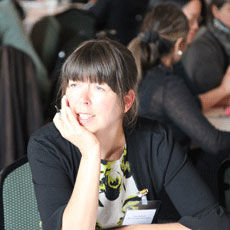Launched in 2016, Community Sponsorship is a British scheme wherein communities raise funds and establish a core group to support a refugee family to resettle in the UK.
The scheme is aimed specifically at vulnerable refugees, and the idea is simple; welcoming a refugee family, recruiting volunteers to support them through – for example, learning English, registering with a GP and negotiating benefit applications and enabling the adults back into work. The community find and prepare a home for the family and, above all, provides a welcome and friendship to the family. The scheme is part of the Vulnerable Person Resettlement Programme (VPRS) that is intended to settle 20,000 vulnerable refugees in the UK by 2020 and the Vulnerable Children’s Resettlement Scheme (VCRS) which aims to resettle 3,000 vulnerable children and their families by March 2020.
In 2017 the Institute for Research into Superdiversity (IRiS) was initially invited by Citizens UK and the Methodist Church to undertake a formative evaluation of the Community Sponsorship Scheme with a view to ensuring their efforts supporting a refugee family were as effective as possible. Following receipt of internal University and ESRC funding and later through connecting with RESET, the research team expanded their efforts from two to twenty-two groups consisting of over 100 refugees. In some cases, we have followed Community Sponsorship groups for over two years to learn from their experiences of establishment, application to the Home Office, receiving a family and supporting refugee integration.
Community Sponsorship: Highlights and Insights
Three years of research, interviewing 250 refugees, volunteers, community members and thought leaders, has culminated in a thorough evaluation of the success of the Community Sponsorship Scheme in the UK so far. Three key reports have been produced, based on refugee perspectives, effects of the scheme on less-diverse communities and an overview of the scheme as a whole. In addition, there are six policy briefs outlining key learning in areas such as refugee integration, motivating volunteers and the wider impact of the scheme. These documents all contain important recommendations around how to improve the scheme going forward.
Jenny Phillimore - Community Sponsorship Evaluation (UK)
Open all sections
The objectives of the evaluation include:
- Considering the motivations, aspirations, and experiences of CS organisers and volunteers
- Exploring group establishment and application processes
- Identifying the gains enjoyed and practical challenges faced by CS groups
- Examining the provision of support once sponsored families are in residence and the extent to which support needs are met
- Exploring the experiences of refugees and the ways in which the CS support shapes their resettlement
- Documenting good practice
- Impacting upon the shape of the CS providing knowledge for practitioners, sponsors, policymakers and CS groups
Reports, blogs and policy briefings

Professor of Migration and Superdiversity
Department of Social Policy, Sociology and Criminology
Jenny Phillimore is Professor of Migration and Superdiversity. She is a world leading scholar in refugee integration, superdiversity and access to social welfare with a particular focus on public health. Jenny is also an expert on Community Sponsorship.
She managers teams of researchers focusing on access to health, education, employment, training, and housing integration with a particular ...
University of Birmingham College of Social Sciences
ESRC Impact Acceleration Fund
Help with understanding integration
The UK has agreed to resettle 20,000 Syrian refugees over the course of the current parliament. To support this complex process, IRiS has developed a Toolkit and range of resources to inform and assist local authorities and practitioners.
Click here to visit the Syrian Resettlement website
Supporting refugees and volunteers during the COVID-19 pandemic
The Community Sponsorship Scheme (CSS) was introduced in the UK in July 2016 to enable community groups to support the resettlement of refugee families. The Community Sponsorship approach relies heavily on the provision of face to face support to enable refugees to settle, thrive and integrate in the UK.
With the advent of the pandemic and introduction of social distancing and lockdown measures in March 2020, Community Sponsorship groups were challenged to offer support to refugees in new ways. With some volunteers and refugees needing to shield and many services moving to remote provision, groups faced a situation very different to that for which they had planned. This project present a report with the insights of some CS volunteers who talked about the challenges faced and the learning that has taken place during the pandemic. It also includes a toolkit with resources for use during and beyond COVID-19 and finally a policy brief with recommendation about how digital technology might be made more accessible to refugees.
Indicators of Integration Framework
Furthur Details
NewsListing (NewsListing) had an error during initialisation.